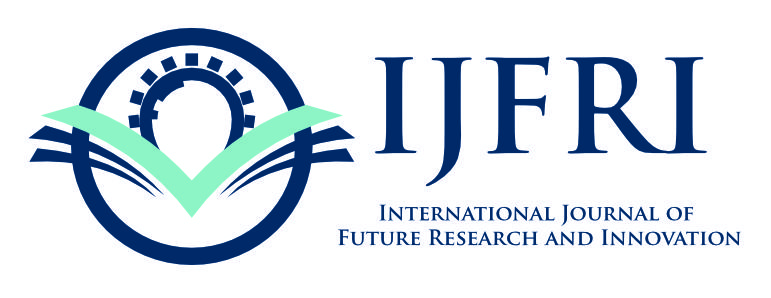The Interplay of Stress and Cancer: Impact on Disease Recurrence and Spread
Main Article Content
Abstract
The interplay between psychological stress and cancer progression has emerged as a critical area of oncological research, with mounting evidence suggesting that chronic stress significantly influences cancer recurrence and metastasis. Stress-induced activation of the hypothalamic-pituitary-adrenal (HPA) axis and the sympathetic nervous system (SNS) leads to sustained elevations in glucocorticoids and catecholamines, which can reshape the tumor microenvironment, suppress immune surveillance, and promote processes such as angiogenesis, inflammation, epithelial-to-mesenchymal transition (EMT), and cancer stem cell activation. These biological changes enhance tumor cell survival, proliferation, migration, and resistance to therapy, ultimately contributing to disease relapse and metastatic spread. Furthermore, stress-associated behavioral changes can impair adherence to treatment regimens, further compounding cancer progression risks. Understanding the molecular and cellular mechanisms linking stress to cancer biology is crucial for developing integrated therapeutic strategies that not only target the tumor directly but also modulate the host’s stress response. This review synthesizes current evidence on the stress-cancer axis, highlights potential interventions—including psychological therapies, pharmacological agents like beta-blockers, and lifestyle modifications—and identifies future research directions aimed at mitigating stress-induced cancer progression. Addressing the impact of chronic stress could represent a paradigm shift in improving long-term cancer outcomes and quality of life for patients
Article Details
Section

This work is licensed under a Creative Commons Attribution 4.0 International License.
All articles published in the International Journal of Future Research and Innovation (IJFRI) are licensed under a Creative Commons Attribution 4.0 International License (CC BY 4.0). Authors retain copyright and grant IJFRI the non-exclusive right to publish, distribute, and archive the work.
How to Cite
References
1. Antoni, M. H., Lutgendorf, S. K., Cole, S. W., Dhabhar, F. S., Sephton, S. E., McDonald, P. G. & Sood, A. K. (2006). The influence of bio-behavioural factors on tumour biology: pathways and mechanisms. Nature Reviews Cancer, 6(3), 240-248. https://doi.org/10.1038/nrc1820
2. Cole, S. W., Nagaraja, A. S., Lutgendorf, S. K., & Green, P. A. (2015). Sympathetic nervous system regulation of the tumour microenvironment. Nature Reviews Cancer, 15(9), 563-572. https://doi.org/10.1038/nrc3978
3. Powe, D. G., Voss, M. J., Zänker, K. S., Habashy, H. O., Green, A. R., Ellis, I. O. & Entschladen, F. (2010). Beta-blocker drug therapy reduces secondary cancer formation in breast cancer and improves cancer-specific survival. Oncotarget, 1(7), 628-638. https://doi.org/10.18632/oncotarget.197
4. Reiche, E. M. V., Nunes, S. O. V. & Morimoto, H. K. (2004). Stress, depression, the immune system, and cancer. The Lancet Oncology, 5(10), 617-625. https://doi.org/10.1016/S1470-2045(04)01597-9
5. Sloan, E. K., Priceman, S. J., Cox, B. F., Yu, S., Pimentel, M. A., Tangkanangnukul, V.& Cole, S. W. (2010). The sympathetic nervous system induces a metastatic switch in primary breast cancer. Cancer Research, 70(18), 7042-7052. https://doi.org/10.1158/0008-5472.CAN-10-0522
6. Sood, A. K., Armaiz-Pena, G. N., Halder, J., Nick, A. M., Stone, R. L., Hu, W. & Lutgendorf, S. K. (2010). Adrenergic modulation of focal adhesion kinase protects human ovarian cancer cells from anoikis. The Journal of Clinical Investigation, 120(5), 1515-1523. https://doi.org/10.1172/JCI43085
7. Thaker, P. H., Han, L. Y., Kamat, A. A., Arevalo, J. M., Takahashi, R., Lu, C. & Sood, A. K. (2006). Chronic stress promotes tumor growth and angiogenesis in a mouse model of ovarian carcinoma. Nature Medicine, 12(8), 939-944. https://doi.org/10.1038/nm1447
8. Wang, T., Wang, G., Hao, D., Liu, X., Wang, D., Ning, N. & Meng, L. (2019). Association between beta-blocker use and survival outcomes in patients with cancer: A systematic review and meta-analysis. JAMA Network Open, 2(9), e198389. https://doi.org/10.1001/jamanetworkopen.2019.8389
9. Zhou, C., Pan, Y., Xu, R., Wang, Y., Zhang, J., & Zhu, S. (2021). Stress and cancer metastasis: Existing research and future directions. Frontiers in Oncology, 11, 644762. https://doi.org/10.3389/fonc.2021.644762

